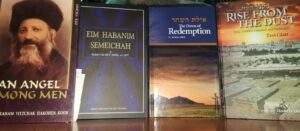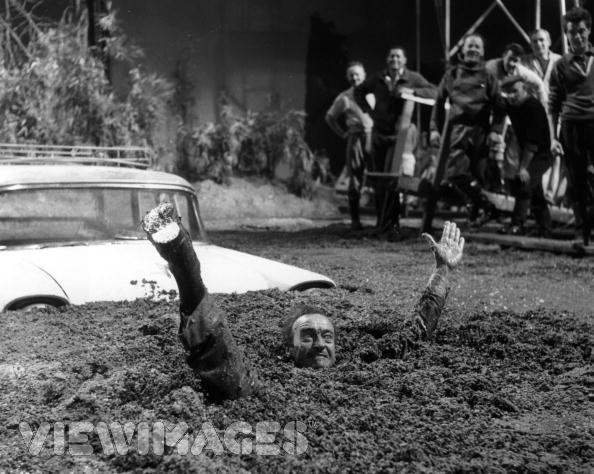VAYIGASH
by Rabbi Moshe D. Lichtman, (https://toratzion.com/about)

According to the Kli Yakar, the last verse of this week’s parashah, together with the first
verse of Parashat VaYechi, contain a powerful and timeless lesson for the Jewish people. At
the end of VaYigash, after Ya’akov and his entire family arrive in Egypt, the Torah states,
Israel settled (וישב) in the land of Egypt, in the land of Goshen, and they took possession
therein; and they grew and multiplied greatly (47:27). The very next verse, which begins
Parashat VaYechi, states, Ya’akov lived in the land of Egypt seventeen years…
There is usually a space in the Torah separating one parashah from the next. As is well
known, however, no such space exists between VaYigash and VaYechi. Rashi quotes the
Midrash’s explanation of this phenomenon: “Why is this parashah ‘closed’? …Ya’akov
wanted to reveal to his sons [the time of] the End [of Days], but it was ‘closed off’ from him.”
That is, God prevented him from doing so. The following is the Kli Yakar’s interpretation of
these verses:
ISRAEL SETTLED (וישב) IN THE LAND OF EGYPT, IN THE LAND OF GOSHEN, AND THEY TOOK
POSSESSION THEREIN; AND THEY GREW AND MULTIPLIED GREATLY: This entire verse accuses
the Children of Israel. For the Holy One Blessed be He decreed that Your descendants
will be strangers (גר) [in a land not theirs] (15:13). They, however, sought to settle
(תושב) in the place where it was decreed that they would be strangers… The verse
reproaches them for this “settling,” for they sought a portion in a land not theirs.
Did they not say to Pharaoh, We have come to sojourn (לגור) in the land (47:4)? This
teaches that they did not go down to Egypt originally to settle there, rather to sojourn…
Now, however, they changed their minds. And they became so settled in Egypt that
they did not want to leave, until the Holy One Blessed be He had to take them out
forcibly. And those who [still] did not want to leave died during the three days of
darkness…
…We still do not know why the Shechinah departed from Ya’akov [preventing him
from revealing the End of Days]. The answer is: The parashah is closed in order to
juxtapose [VaYechi] to the verse Israel settled…in the land of Goshen. For it is well
known that knowledge of the End of Days can cause great damage. Earlier generations
who know that the redemption will not come in their days, will not seek God’s
countenance and beg for the redemption… [Instead], they will strive to settle
permanently in the lands of the nations and acquire for themselves a portion in their
lands, like [full-fledged] settlers. [Thus, they will] lose hope over the redemption.
Therefore, HaShem concealed the final “End,” so that the Jews of every generation will
seek God’s countenance and David their king. He wanted to prevent them from striving
to settle in the lands of the nations. This way, they will constantly await God’s
salvation.
Due to our sins, this tendency is prevalent in our midst, even though we do not know
when the “End” will be. Nonetheless, there are many simpletons who settle down in
the lands of the nations and build themselves prominent, paneled homes – stone
edifices made to last. For this reason, they do not seek God’s countenance
wholeheartedly, [beseeching Him] to bring them to their Land. Therefore, God leaves
them there.
Thus, the verse “Israel settled…in the land of Goshen” accuses Israel of wanting to
settle in and take possession of a land not theirs. And this mishap occurred because
they knew when the redemption from Egypt would take place [-after four hundred years
of bondage (see 15:13)]. Therefore, the first generations who knew for sure that the
redemption would not come in their days sought to settle permanently and acquire a
portion in the land of Egypt. This is why our verse is juxtaposed to the verse Ya’akov
lived (ויחי יעקב). It teaches us that this mishap – which occurred to those generations
because they knew the time of the End – caused [only] Ya’akov to live, but not the
spirit of Ya’akov [i.e., the Shechinah left him]. Ya’akov alone lived [but not his spirit],
so that he would not reveal the final End, so that this evil consequence would not spread
to future generations.
Any further comment would only detract from these remarkable words.






